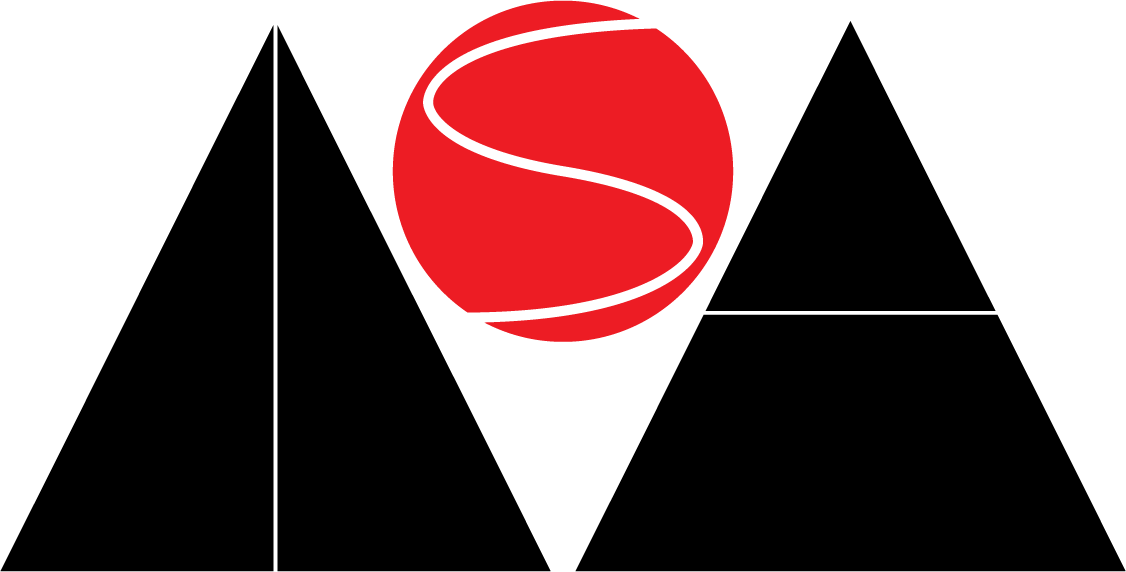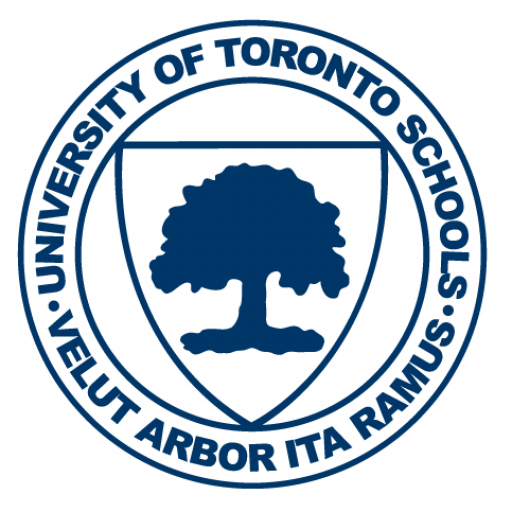

2023 ISOMA Conference
UTS is proud to be hosting the 2023 Independent Schools of Ontario Mathematics Association members’ conference on Thursday, January 12, beginning at 4PM.
UTS is located in the heart of downtown Toronto in our newly renovated home.
In lieu of a keynote speaker, we are having a math trivia challenge at dinner, so bone up on your mathematical miscellanea!
Schedule
| Time | Event |
|---|---|
| 4:00-4:30 | Check in and Refreshments in the Atrium |
| 4:35-5:20 | Session A |
| 5:30-6:15 | Session B |
| 6:25-7:25 | Dinner and Trivia Game |
| 7:30-8:15 | Session C |
Session A
| Session ID | Description of Content |
|---|---|
| Location | |
| Title | |
| Presenter | |
| A01 | I will share some new approaches I have tried as I have introduced trigonometry and factoring. And some approaches I’ve used to connect several concepts around quadratic relations. |
| Room 131 | |
| Making Sense of Key Concepts in Grade 10 Math | |
| Krista Festarini, SCS | |
| A02 | In this presentation members of the UCC Design Team will share how the Design Program takes an interdisciplinary approach to the projects they complete. They will share a unit called Designing Data where students take large data sets and use them to communicate a message to a target community. In this project students use the MYP Design Cycle while learning skills in Computer Science with links to topics in Mathematics. |
| Room 132 | |
| Designing Data | |
| Joseph Bush and Lynda Yearwood, UCC | |
| A03 | Using Padlets, playlists, and portfolios to give students choice for how to express their understanding of mathematical concepts. The goal of this session is to find sample pieces to springboard into your own classroom(s)! |
| Room 135 | |
| Giving Choice in Assessment | |
| Carly Ziniuk, BSS | |
| A04 | Imagine turning the pages of a children’s book and discovering that the pages get smaller until you reach the middle of the book and then they get larger returning to the size of the first page. In this workshop we will collect data about the area, perimeter and diagonal of the pages from the first page to the last of page of the book, make graphs and contemplate what the graphs would be like if the pages of the book were circular. We will also discuss what stories your students would write for a book that has pages that change in size. The name of this children’s book is Once Upon a Time There Was and Will Be So Much More by Johanna Schaible. This remarkable book was published in 2021, it is a treasure to hold and a page-turner. |
| Room 136 | |
| Mathematical activities for a children’s book with pages that change in size | |
| Ron Lancaster,OISE/UT | |
| A05 | Stick it on the fridge or chuck it in the bin… what is the true value of a math test? Do we care more about the achievement score or the growth of the child through the experience. Professional and academic life is bound to test our students eventually – how will we use our moments to build the character required to help them meaningfully assess their achievement, or lack thereof, and decide what to do next? We believe that math tests and, more importantly, their aftermath, can be empowering tools that lead to meaningful self-reflection and goal setting. The Sterling Hall School is on a quest to develop character, communication and problem solving through meaningful self-assessment in intermediate mathematics. Let’s care more about The Aftermath. |
| Room 137 | |
| The Aftermath – What is the true value of a Math Test? | |
| Tyler Meakin & Drew Gulyas, SHS |
Session B
| Session ID | Description of Content |
|---|---|
| Location | |
| Title | |
| Presenter | |
| B01 | Drills not only “free up” students to tackle more challenging problems in math, they also act as an incredibly effective classroom management tool. |
| Room 131 | |
| The Virtues of Mathematical Drills | |
| Mark Sunderland and Kristen Chen, UTS | |
| B02 | We will do a brief introduction to a Thinking Classroom and what that looks like in our Grade 10 class. We will look at how we have spiraled the curriculum to dive more deeply into some of these topics and how they’re connected. We will also have time to discuss any questions about implementing a Thinking Classroom, the challenges and benefits of our spiraled approach, and how our modular schedule supports this model. |
| Room 132 | |
| Spiraling Grade 10 Topics in a Thinking Classroom | |
| Beth Nicols and Joe McRae, LCS | |
| B03 | With limited teachers of computer science provincially, it’s often difficult to find time or the opportunity to share resources, and to talk about our courses. In this session, we offer the opportunity for each teacher to share and get feedback on any part of their course design – from overall layout of the course, specific assessments, how you handle specific expectations. The floor will be yours for a chunk of time! We hope that you’ll take away a few new ideas that you can bring back to your classroom! |
| Room 135 | |
| ICS3U – A Round Table Discussion | |
| Will Truong and Briana Truong, Appleby College | |
| B04 | The way a math class begins set the tone for the entire lesson and the course of the year. So, how do we start wisely? Using a combination of Jo Boaler’s ‘number’ and ‘data’ talks along with other rich math problems, the classroom can become a thoughtful place full of thinking and student engagement. Follow along on my journey of creating a math class where students are in the drivers seats and the learning they do is rich and meaningful. |
| Room 136 | |
| Math Talks – How to Hook Students from the Minute they Walk in the Room! | |
| Britney Coleman, Havergal College | |
| B05 | How might we develop math modelling skills in grades 5, 6 and 7 in the ecology units of the science curriculum? This was the question we explored over the course of two years working as STEM teachers at RSGC. We will be sharing the projects, how we developed them using the design cycle and how through this structure allows for students to direct their own learning through challenge by choice opportunities. The projects explores the modelling process, patterning and algebra, number sense and data analysis – and also lots of fun. |
| Room 137 | |
| Math Modelling with Ecology in Grades 6 & 7 | |
| Ruth MacArthur, RSGC and Rebecca Kacsor, Branksome Hall |
Session C
| Session ID | Description of Content |
|---|---|
| Location | |
| Title | |
| Presenter | |
| C01 | In recent years, spatial visualization and reasoning have emerged as central topics of interest in conversations about mathematics education — particularly in the early years. These conversations have been spurred on at least in part by the growing body of evidence linking spatial reasoning to improved mathematics achievement outcomes. However, despite widespread interest in the relationship between spatial processes and mathematics achievement, research at the intersection of spatial reasoning and instructional design is still in its infancy. Considering this evidence in the context of girls’ learning in the Junior School at Havergal College, a question arises: how might spatial visualization and reasoning be better developed, connected, and leveraged for girls’ learning of mathematics across the different strands of the Ontario Mathematics curriculum? This presentation will explore the rationale, design, implementation, and interpretation of results from a 4-year study undertaken as part of Havergal College’s Chair of Teaching and Learning action research initiative. |
| Room 131 | |
| Mathematical Thinking in the Early Years | |
| Andy Lucacescu, Havergal College | |
| C02 | Applicable to all ages, I will share 5 successful strategies that I have used to help students view mistakes as opportunities to learn. After a quick sharing time will be provided for you to discuss how these strategies might be adapted to meet these needs of your students. |
| Room 132 | |
| Mistake Mondays and other strategies to help learners turn errors into opportunities | |
| Sheila Barclay | |
| C03 | In his book Infinite Powers, mathematician Steven Strogatz introduces derivatives using the following thought experiment: imagine placing a piece of a curve under a microscope and zooming in. As we zoom in closer, the piece would begin to look more and more like a straight line. Using Desmos, we can transform this abstract thought experiment into a concrete one for students. In this session, I will share how I have used this approach throughout my calculus course to help students develop conceptual understanding of derivatives. Participants will experience this approach as learners and discuss how they might use these ideas in their own classes. |
| Room 135 | |
| The Desmos Graph that Changed My Calculus Course | |
| Cody Wilson, The York School | |
| C04 | At St. Michael’s College School we have been working with an online software to support our lessons and provide data about how our students are managing the concepts through their open practice of the concepts. We will present our case study and argue the software decreases a teacher’s administrative time, and also increases student learning of the concepts. So far it has been successful in helping us track student learning and providing us with insights on their learning. I will present this seminar in collaboration with Mike McCarthy of Hypatia Systems. |
| Room 136 | |
| Senior Mathematics Teaching Tools; Increasing Efficiency and Efficacy | |
| Peter Zavodny, SMCS | |
| C05 | After a year and a bit of introducing coding to the grade 9 Mathematics curriculum, this is a session for those to share in an open and safe forum and what they tried, and what their experiences (good and bad) were like. As a Computer Science graduate, professional for nearly 20 years, and now teacher, when coding was added, a lot of programming zealots saw this as a great opportunity to “teach coding” to all. I was not in that camp, and I’m guessing many math teachers were not as well. This is also an open forum on YOUR input of what it should be. |
| Room 137 | |
| Coding In Grade 9 Math (MTH1W) | |
| John Tam, HTS |
Registration for this event is now closed.
